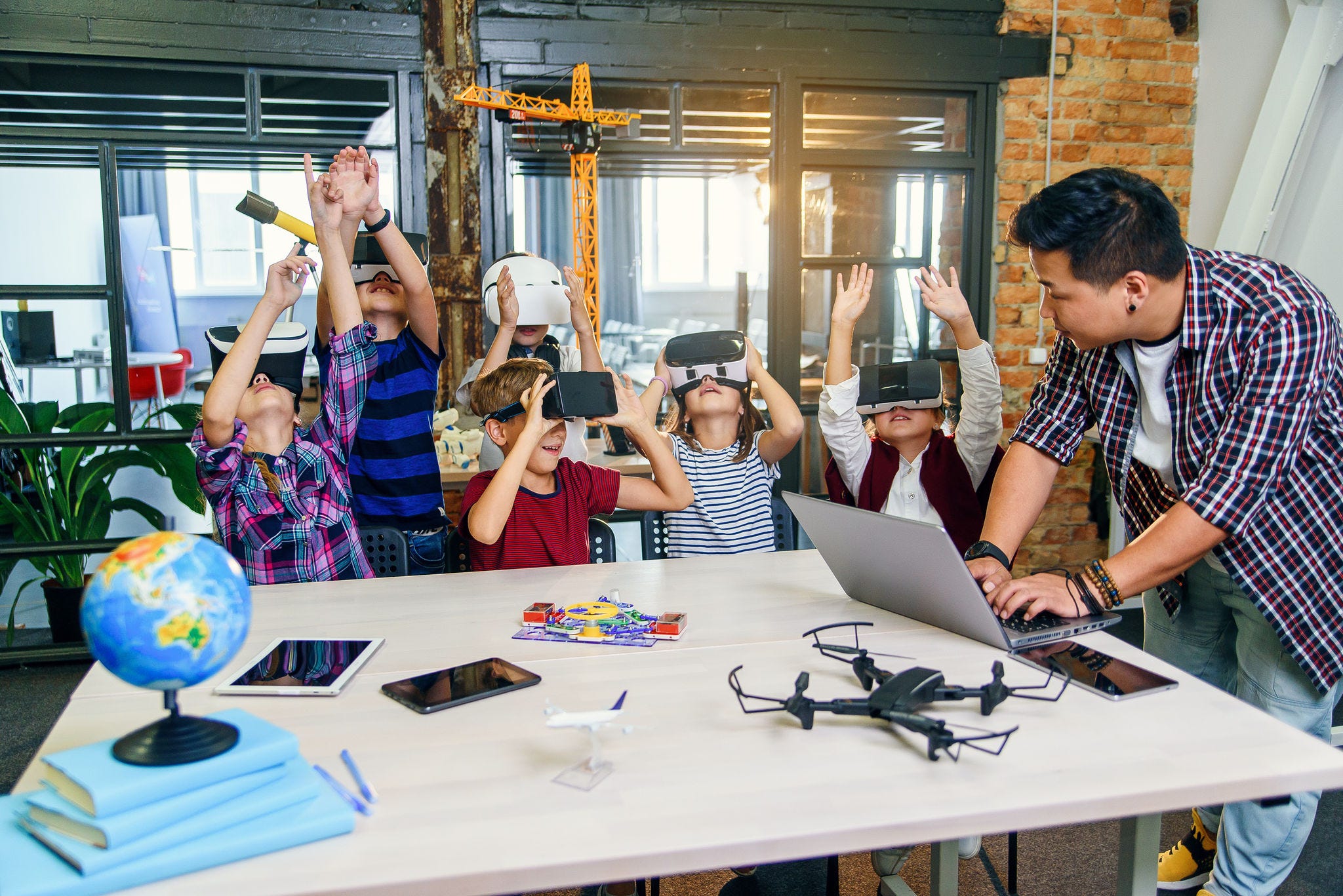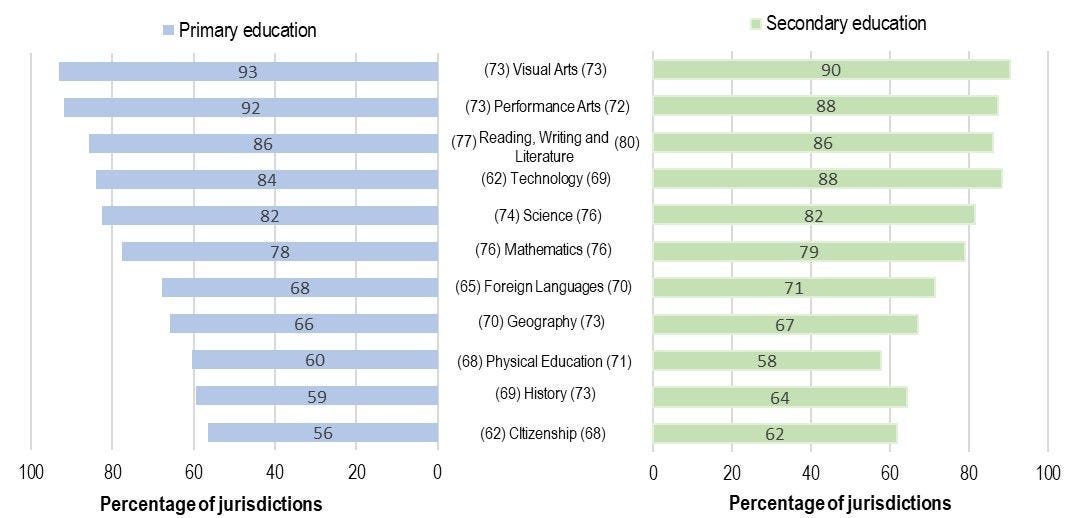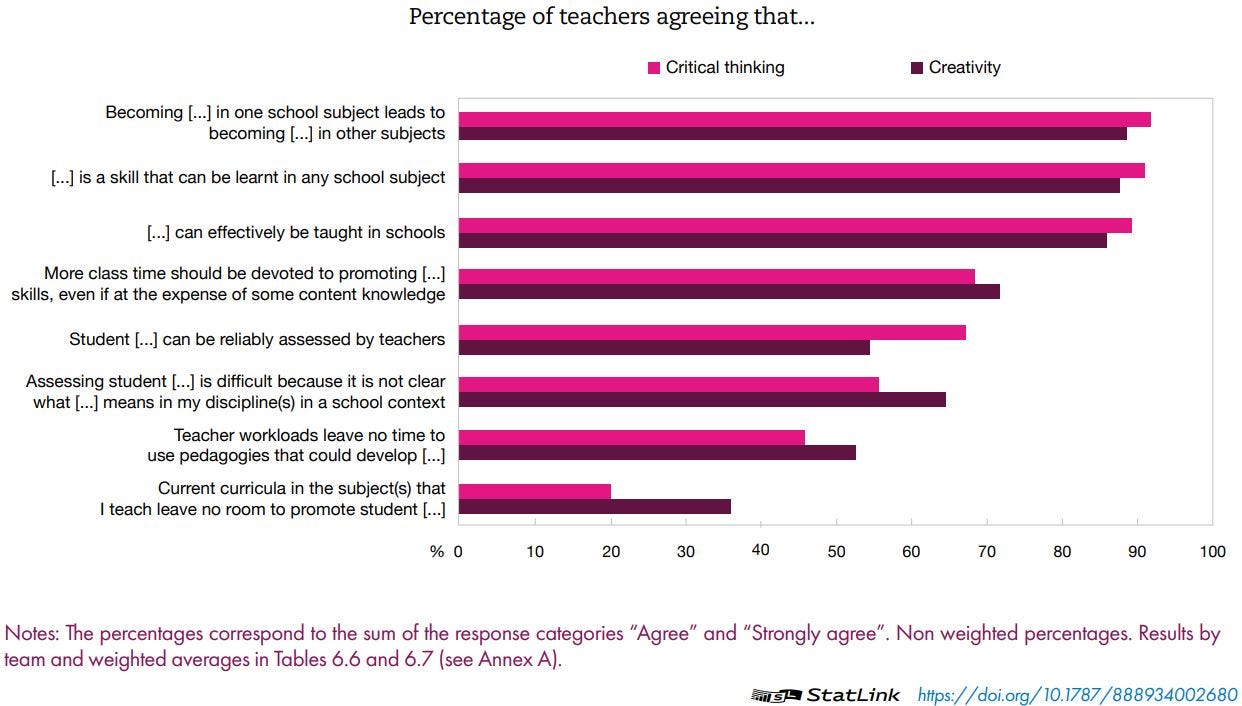Successful economies encourage innovation. Successful employees know how to develop new ideas and ways of working. Education needs to prepare students for working lives that will require them to consider multiple perspectives and generate novel solutions for complex problems. Learning to use knowledge creatively and critically is key to mastering subjects and disciplines. The OECD Innovation Strategy for Education and Training team explores approaches to equipping people with innovation skills and supporting innovation and continuous improvement in education systems.
Innovations in education and skills
Innovation is a key driver of growth and wellbeing. Creating an innovation-friendly ecosystem is key to creating education systems fit for the future. This means nurturing innovation skills like creativity and critical thinking and ensuring the main drivers of innovation remain active: namely, individual, organisational and system learning.

Key messages
Whilst most agree innovation skills are important, too little is known about what this means for everyday teaching and assessment. Education’s ability to foster and monitor progress is limited by a lack of shared practical knowledge about how innovation skills materialise at different development stages. Education systems have rarely established ways to consistently nurture them and to assess them formally. Working with member and non-member countries, the OECD is developing tools to make these skills more visible and measurable for teachers, students and policy makers. These tools seek to encompass innovation skills and the subject knowledge included in the curriculum.
More broadly, measuring innovation in education and understanding its drivers and obstacles is essential to improving the quality of the education sector – and of specific educational establishments. Education systems need better methods to measure whether pedagogical and administrative practices are changing in the expected direction. They need more understanding of what it means to have a positive innovation culture that supports innovation. The OECD aims to help policy makers and institutional leaders understand which factors of innovation they can influence to support educational objectives. This can be accomplished at the system or institutional level, as is often the case in other sectors, or through specific innovation projects.
Context
The move to competency-based curricula
Many education systems, schools and higher education institutions across the OECD have moved towards competency-based curricula. They focus on what students can do with their knowledge, not just on what they know. In addition to developing knowledge, developing competences that help students deepen their knowledge and tackle complex challenges with creativity, critical thinking, collaboration and communication has become foundational in education.
Percentage of jurisdictions where the following domains/school subjects refer to creativity in system-level curricula or learning standards, by level of education (2022)

Professional learning and training for innovation
Teachers and institutional leaders also need innovation skills. Institutions need to innovate to keep pace with rapid changes in society, from the rise of Artificial Intelligence to the emergence of new professions. In turn, professional learning needs to adapt to meet these changing needs and support education actors to improve teaching and practices.
Teachers’ beliefs about creativity and critical thinking in school

Related publications
Programmes and projects
-
Data and digital technologies are among the most powerful drivers of innovation in education, offering a broad range of opportunities for system and school management, as well as for teaching and learning. But they also create new policy issues as countries face challenges to reap the benefits of digitalisation in education while minimising its risks.Learn more
-
Preparing for the future means taking a careful look at how the world is changing. Reflecting on alternative futures helps anticipate and strategically plan for potential shocks and surprises.Learn more
-
Artificial Intelligence (AI) and robotics are becoming increasingly sophisticated at replicating human skills. The evolution of these technologies could fundamentally transform work over coming decades and deeply affect education’s current role in providing skills and preparing learners for future work.Learn more
-
Understanding the nature of 21st Century childhood is crucial for an education that is increasingly expected to support students to thrive in both a digital and non-digital world, delivering academic learning while also building physical and emotional well-being. This has implications for the skills, capacity and resources required.Learn more
-
The OECD’s expanding evidence base has highlighted the importance of high-quality teachers and teaching in education. Yet, challenging questions remain, and there is a need for space in the teacher debate to anticipate future developments, to strengthen professional identity and to support proactive teacher policy making.Learn more
-
Creativity and critical thinking prepare students for innovative economies and improve wellbeing. However, educators often lack guidance on how to equip students with creativity and critical thinking within subject teaching. Education systems have likewise rarely established ways to systematically assess students’ acquisition of creativity and critical thinking.Learn more
-
The Centre for Educational Research and Innovation (CERI) provides and promotes international comparative research, innovation and key indicators, explores forward-looking and innovative approaches to education and learning, and facilitates bridges between educational research, innovation and policy development.Learn more
-
The Education Policy Outlook is an analytical observatory that monitors the evolution of policy priorities and policy developments from early childhood education to adult education, mainly among OECD education systems, to provide a comparative understanding of how policies are evolving, and how they can be best implemented or improved over time.Learn more
-
The OECD’s programme on education and skills policy support policymakers in their efforts to achieve high-quality lifelong learning, which in turn contributes to personal development, sustainable economic growth, and social cohesion.Learn more
-
OECD Future of Education and Skills 2030 aims to build a common understanding of the knowledge, skills, attitudes and values students need in the 21st century.Learn more
-
Add a short description – maximum 200 characters (4 lines). This should outline the OECD’s mandate and the main issues/challenges with respect to the project. Writing style and tone should be clear, to the point, and jargon-free.Learn more
-
The Higher Education Policy Programme carries out analysis on a wide range of higher education systems and policiesLearn more
-
The Research, Development and Innovation (RDI) programme established by the PISA Governing Board in 2018 explores how different areas of the assessment programme (e.g. test design, scoring methodologies) can be improved.Learn more
-
Since 2013, the OECD has gathered evidence on how school resource policies work in different contexts. The focus is now on digital resources to enable countries to learn from each other in the digital transformation of their education.Learn more
-
Meeting the challenges of the 21st Century means that schools must be empowered to play a more central and active role in leading improvements in education. To support this, Schools+ will bring together major education networks to put schools at the centre of education design.Learn more







